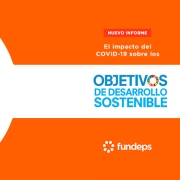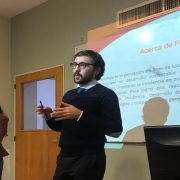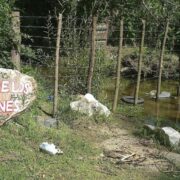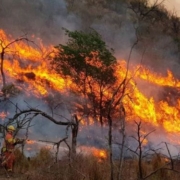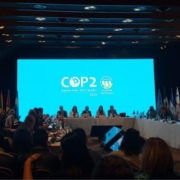We demand from the Municipality of Córdoba compliance with the Mitigation Plan of the Bajo Grande EDAR
Along with the Omas and neighbors of the Chacras de la Merced neighborhoods, Villa La Merced, Ciudad Mi Esperanza and Parque 9 de Julio, we filed a complaint against the mayor Ramón Mestre in which we denounced the non-compliance with the mitigation plan for the Bajo WWTP Large and the neighborhoods located downstream and we demand their effective execution.
“Below, we offer a google translate version of the original article in Spanish. This translation may not be accurate but serves as a general presentation of the article. For more accurate information, please switch to the Spanish version of the website. In addition, feel free to directly contact in English the person mentioned at the bottom of this article with regards to this topic”.
The communities of Chacras de la Merced, Villa La Merced, Ciudad Mi Esperanza and Parque 9 de Julio, live a few meters away from the sewage treatment plant in the city of Córdoba on the banks of the Suquía river, and have been living with pollution for years. of water, air and soil due to the poor functioning of the Bajo Grande plant.
Derived from this contamination, neighbors must face every day an infinity of problems, the most serious being those related to health (skin, respiratory and gastrointestinal diseases). Similarly, the environment vitiated by the smell of cloacal water overturned raw, makes life more difficult in that place.
The contamination problem of the Suquía river as a direct consequence of the excess of sewage liquids, by virtue of the dumping with minimal treatments or without treatments, carried out by the Bajo Grande WWTP is public knowledge. Even recognized by the Municipality of Córdoba at least since 2014 when it declares for the first time the environmental and sanitary emergency of the EDAR plant and of the areas located downstream. The measure was extended every year being the last extension in the past month of November.
Within the framework of this emergency, the Intendant implemented a Mitigation Plan by virtue of which a number of actions are entrusted to different areas of the Municipality of Córdoba to mitigate the effects of the pollution produced by the plant on the population, particularly in the Suquía and surrounding areas.
The departments included are the Secretariat of Government, Citizen Participation and Social Development, the General Secretariat, the Public Services Secretariat, the Ministry of Health and the Secretariat of Planning and Infrastructure.
Regarding the mitigation measures contemplated in the plan, these are: a) Update of the socioeconomic survey of the affected population downstream of the plant; b) Update of the survey of the health status of the population; c) Distribution of safe drinking water for different uses in areas where provision by network is not possible; d) Preventive sanitary cord; e) Management of the effluents of the E.D.A.R. Under Large; e) Resource monitoring plan and f) Awareness campaign.
Last year, we presented together with Alida Weht, neighbor of the Chacras de las Merced district and member of the Las Omas Civil Association, requests for information addressed to these Secretariats, so that they could inform us about the status of the Mitigation Plan, without receiving answer. Therefore, this year we insist on the orders, as it is public information to which every citizen has the right to access and the Municipal State has the obligation to make known, not only because the actions committed by the municipality have an impact on the health and quality of life of the people living in the neighborhoods surrounding the plant, but of all the people of Cordoba as the Suquía river – at least at one time – one of the sources of most important drinking water in the entire province.
The only distribution that responded was the Ministry of Health and it did so deficiently and with information that does not fit with the reality that exists in the community of Chacras de la Merced.
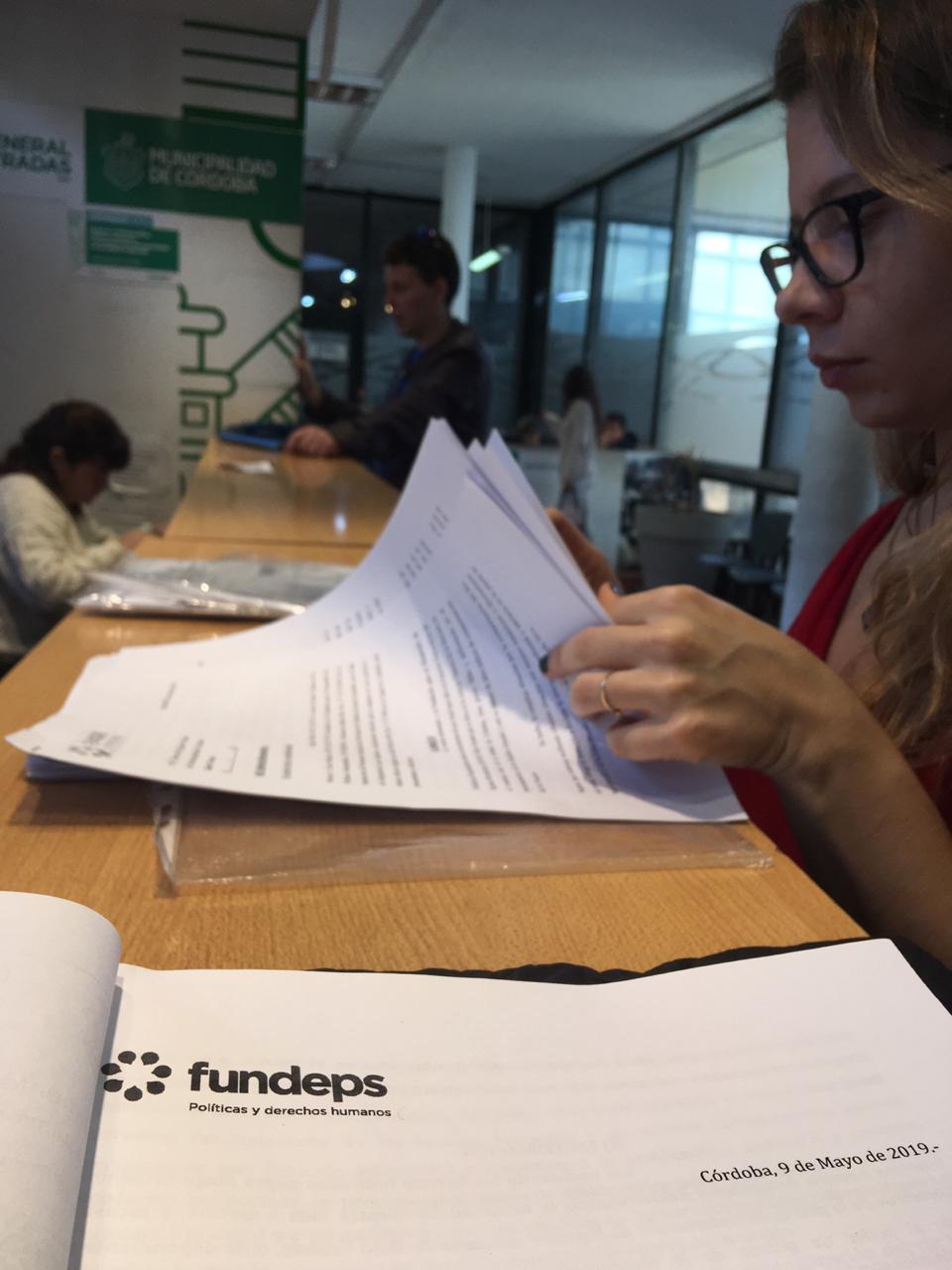 Motivated by this, and the lack of execution of the successive mitigation plans, is that together with the Omas andneighbors of the neighborhoods located downstream of the plant, we initiated a claim against the Municipality of Córdoba denouncing each of these breaches and demanding their adequate and effective execution.
Motivated by this, and the lack of execution of the successive mitigation plans, is that together with the Omas andneighbors of the neighborhoods located downstream of the plant, we initiated a claim against the Municipality of Córdoba denouncing each of these breaches and demanding their adequate and effective execution.
With respect to the health needs of the area, the deficient infrastructure of the neighborhood Health Center is denounced, which lacks adequate facilities for patient care; It has only two rooms, the spaces are very small, there is no heating, there is only one doctor who can not supply it and he attends only in the morning, sometimes there are not enough medicines to deal with tracer diseases in the area, particularly dermatitis, which leads to the people of the neighborhoods tending to naturalize their ailments due to the deficient medical attention provided by the municipality.
Another of the mitigation measures whose compliance is required is the “Awareness Campaign” under the responsibility of the Ministry of Health – DAPS and the Directorate of Sanitary and Gas Networks. The actions included are: a) Continue actions in favor of improving the communication of environmental risks, b) Continue with informative and educational talks to the school population of the sector and c) Installation of informative posters on the risk of use and consumption of the river water. None of these actions has been carried out, there is widespread misinformation in the sector about the real risks of contamination of the Suquía River. In addition, all along the path of Chacra de la Merced there is a single sign in the area warning that it is forbidden to bathe in the river. In any case, such ignorance is that children continue to bathe in certain sectors of the Suquía and in the lagoons, putting their health and their lives at risk.
In addition, it is reported that there are sectors of the Chacras de la Merced neighborhood where there is no potable water network. Neighbors and neighbors are forced to connect in an irregular manner to the only network that is exclusive to the Bajo Grande WWTP plant, which is also not safe water. Taking into account the health and environmental crisis declared in the area by the pollution of the Suquía River, it is inadmissible that the population lacks safe drinking water.
In short none of the mitigation measures is or has been adequately met by the municipality, which leads to the emergency being extended every 180 days, becoming a formal declaration without being able to give the affected communities a structural solution and definitive to the environmental and health problems that have been going on for years.
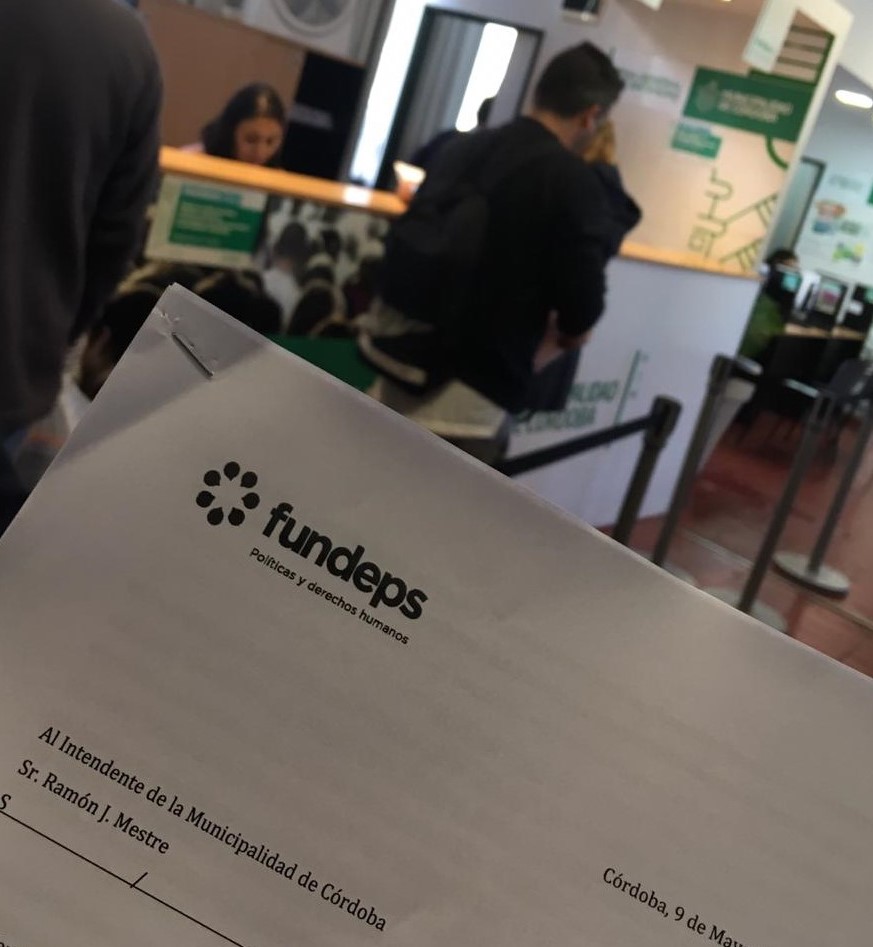 The area where these communities are located 40 years ago was part of the “greenbelt” of the city of Córdoba, from there came the fruits and vegetables that supplied the markets, jobs now prohibited by the high levels of contamination of the Suquía River. The neglect of the State transformed this area into a marginal community, with multiple sources of contamination (quarries, tanneries, garbage), which every day struggles to survive and to fight for its human rights to health, a healthy environment and life , all this despite the indifference of the municipal authorities.
The area where these communities are located 40 years ago was part of the “greenbelt” of the city of Córdoba, from there came the fruits and vegetables that supplied the markets, jobs now prohibited by the high levels of contamination of the Suquía River. The neglect of the State transformed this area into a marginal community, with multiple sources of contamination (quarries, tanneries, garbage), which every day struggles to survive and to fight for its human rights to health, a healthy environment and life , all this despite the indifference of the municipal authorities.
The expansion works of the EDAR plant and the refunctioning of the current one, do not matter the improvement of the quality of life of the people who live downstream of the plant. Nor do they result in the termination of the environmental and sanitary state of emergency in the area, while the mitigation actions have not been carried out by the Municipality of Córdoba, which is why we demand that the Mayor take the corresponding measures so that execute the Mitigation Plan prepared for the Bajo Grande plant and the zones located downstream.
The municipality has a pending debt with the population of this sector of the city, and therefore we demand a definitive solution to the contamination of the Suquía River and especially for the guarantee of the rights of those who have been affected.

